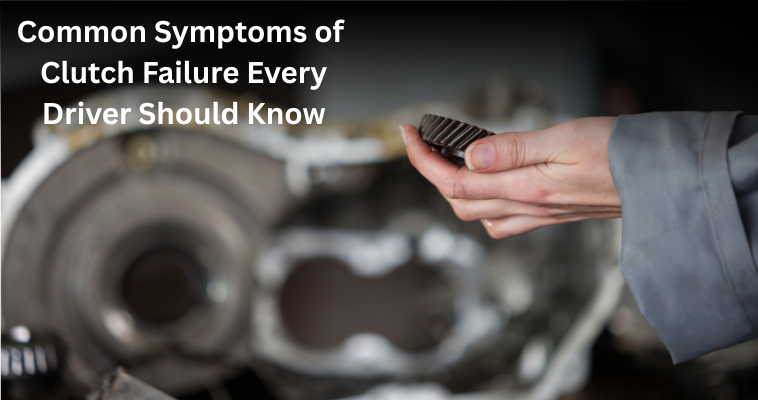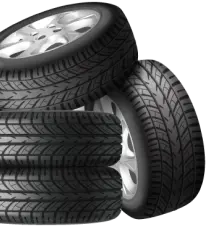The clutch is an essential component in any manual transmission vehicle. It serves as the link between the engine and the wheels, allowing smooth gear shifts and precise control while driving. Like all mechanical parts, the clutch experiences gradual wear and tear over time. Ignoring early signs of clutch problems can result in severe damage, costly repairs, or even a complete breakdown while driving. Ensuring routine maintenance by opting for a car service near you can help prevent such issues.
Understanding the common symptoms of clutch failure helps drivers take action and prevent unnecessary inconvenience. In this blog, we’ll break down the signs to watch for, what they indicate, and why addressing them on time is essential.
10 Common Signs of Clutch Failure Every Driver Should Know
Here are some of the most common signs that indicate your clutch may be failing and needs attention:
1. Difficulty Shifting Gears
If you find it increasingly difficult to shift gears, especially when moving into first gear or reverse, this is a strong indicator of clutch problems. A worn clutch plate or low hydraulic fluid could be the cause. Ignoring this can strain your gearbox and lead to further damage.
2. Slipping Clutch
One of the most noticeable symptoms of clutch failure is when the clutch starts slipping. This occurs when the engine revs increase, but the car doesn’t accelerate accordingly. It is often most obvious while driving uphill, towing, or carrying heavy loads. Slipping typically indicates a worn clutch disc that no longer provides sufficient friction.
3. Burning Smell
A distinct burning smell, especially during gear changes, is often caused by a clutch that is overheating due to excessive friction. This is a clear warning that the clutch plate is wearing out and may soon fail. If you notice this smell regularly, it is ideal to have your vehicle inspected by a car mechanic near you before the damage escalates.
4. Unusual Noises
Grinding, squealing, or growling noises when pressing the clutch pedal usually indicate a problem with the release bearing or clutch fork. These sounds should not be ignored, as they signal worn components that could soon lead to clutch failure.
For more information on other warning sounds from your vehicle, check out our blog 5 Car Noises That Require Immediate Attention.
5. Vibrations When Pressing the Clutch Pedal
Another common issue is vibrations or shuddering when you press down on the clutch. This is often linked to a worn clutch disc, damaged pressure plate, or even oil contamination on the clutch surface. These vibrations not only affect comfort but also signal that parts of your clutch system are struggling.
6. Poor Acceleration Despite High Revs
If your car seems sluggish and struggles to pick up speed even though the RPM gauge shows high revs, the clutch may not be engaging properly. This typically indicates a slipping clutch and requires urgent attention. Delaying repairs can cause damage to both the clutch and the transmission.
7. Clutch Pedal Feels Soft or Stiff
The feel of your clutch pedal can reveal a great deal about its condition. If the pedal feels too soft, too stiff, or doesn’t return smoothly, there may be issues with the hydraulic system, clutch cable, or pressure plate.
8. Car Jerks When Changing Gears
Smooth gear transitions are essential for a comfortable driving experience. If you notice your car jerks, lurches, or shakes during gear changes, it could mean the clutch is not engaging or disengaging properly. This is often an early-stage symptom of a failing clutch.
9. High Clutch Engagement Point
If the clutch engages very high on the pedal’s release, it usually indicates that the clutch is nearing the end of its durability. This sign often develops gradually, making it easy to overlook until the clutch starts slipping more noticeably.
10. Complete Clutch Failure
The most severe scenario is a clutch that completely fails, leaving you unable to change gears or drive the car. This typically happens after ignoring earlier signs of trouble. At this stage, considering a complete clutch replacement near you will restore your car’s functionality.
Why Choose BCS Workshop for Your Car’s Clutch Issues?
At BCS Workshop, we understand how stressful clutch problems can be for car owners. That’s why we provide professional diagnostics and reliable solutions customised to your vehicle. Whether it’s a simple adjustment, hydraulic system repair, or complete clutch replacement, our experienced team ensures your car gets back on the road safely and efficiently.
By choosing our workshop, you benefit from:
-
Reliable mechanics with experience in European and other vehicles
-
Quality parts and tools for durable repairs
-
Transparent recommendations and clear explanations
-
Convenient location and service options to fit your schedule
If you’re looking for car service in melbourne, we’re here to help.
Take Away
Recognising the symptoms of clutch failure early can save you from expensive repairs and unexpected breakdowns. Common signs include slipping, difficulty shifting gears, burning smells, unusual pedal feedback, grinding noises, and poor acceleration. If you notice any of these issues, don’t delay in seeking professional help.
At BCS Workshop, our team is committed to delivering reliable clutch repairs and replacements to ensure your vehicle performs efficiently.
If you suspect problems with your clutch, book a car service in Melbourne with us today.
Frequently Asked Questions About Clutch Failure
Q: How long does a car clutch typically last?
A: A car clutch can last anywhere between 50,000 to 100,000 kilometres, depending on driving habits, vehicle type, and road conditions. Aggressive driving, frequent stop-and-go traffic, and heavy towing can reduce its lifespan.
Q: Can a slipping clutch be temporarily fixed without replacement?
A: Minor clutch slipping can sometimes be addressed with adjustments to the clutch pedal or hydraulic system. However, if the clutch disc is worn out, a replacement is the most effective and long-term solution.
Q: How can I prevent clutch problems?
A: Regular maintenance, smooth gear changes, avoiding excessive clutch pedal use, and timely servicing of the hydraulic system can help extend the life of your clutch. Inspecting the clutch at the early signs of trouble can prevent significant damage.
Q: How do mechanics at BCS Workshop diagnose clutch issues?
A: Our Mechanics use a combination of road tests, pedal feel assessments, and visual inspections of the clutch disc, pressure plate, and hydraulic system to accurately identify problems.
Q: Can I drive with a failing clutch?
A: Driving with a failing clutch is possible for short distances, but not recommended. Continued use can damage the transmission and other drivetrain components, resulting in more expensive repairs.









